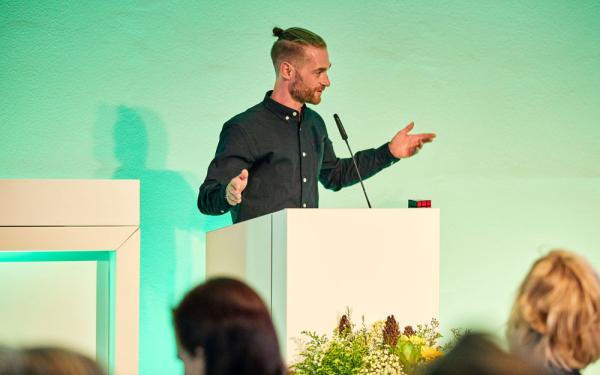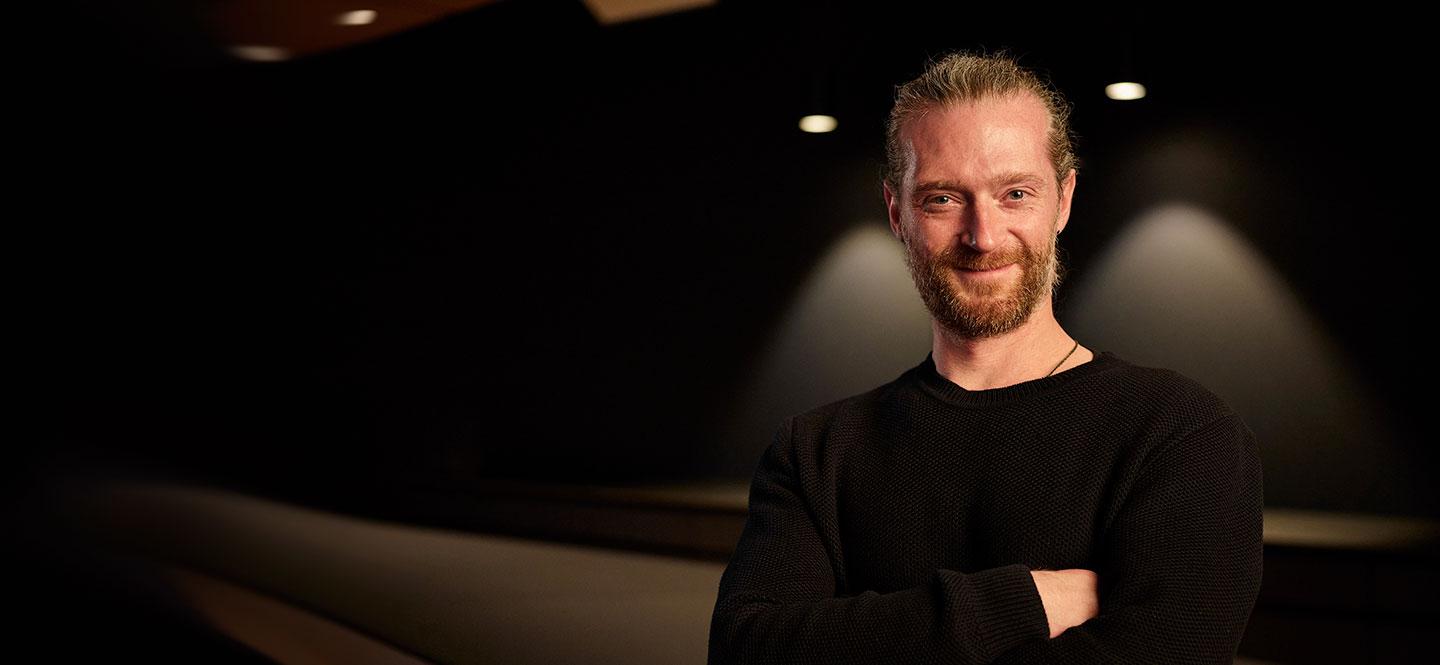
Felix Albertin für VolkswagenStiftung
Climate researcher Niklas Boers works on optimizing climate models with the aim to improve predictions about extreme weather events and potential tipping points in the Earth system – out of a deep sense of responsibility for future generations.
No, a picture of himself in the Amazon rainforest is not what Freigeist Fellow Niklas Boers wants. "Western-socialized people only belong in the Amazon if their presence is absolutely necessary for research purposes," says Boers. "I have always turned down invitations to fly there." For he is convinced: "The ecosystem would be fine if we didn't exist." Yet in 2022 the Earth system scientist published one of the most important studies on the resilience of the Amazon rainforest, which is threatened by climate change and deforestation.
A picture standing in front of a melting glacier in the Alps, on the other hand, would be better suited to him. An avid cross-country skier, Boers was often out and about on his skies early in the morning during his physics and mathematics studies at Ludwig Maximilian University in Munich, with "the finest powder snow, even in the rather low Bavarian foothills of the Alps." But in recent years there have been far fewer days on which that would have been possible – "the winters were simply too warm".
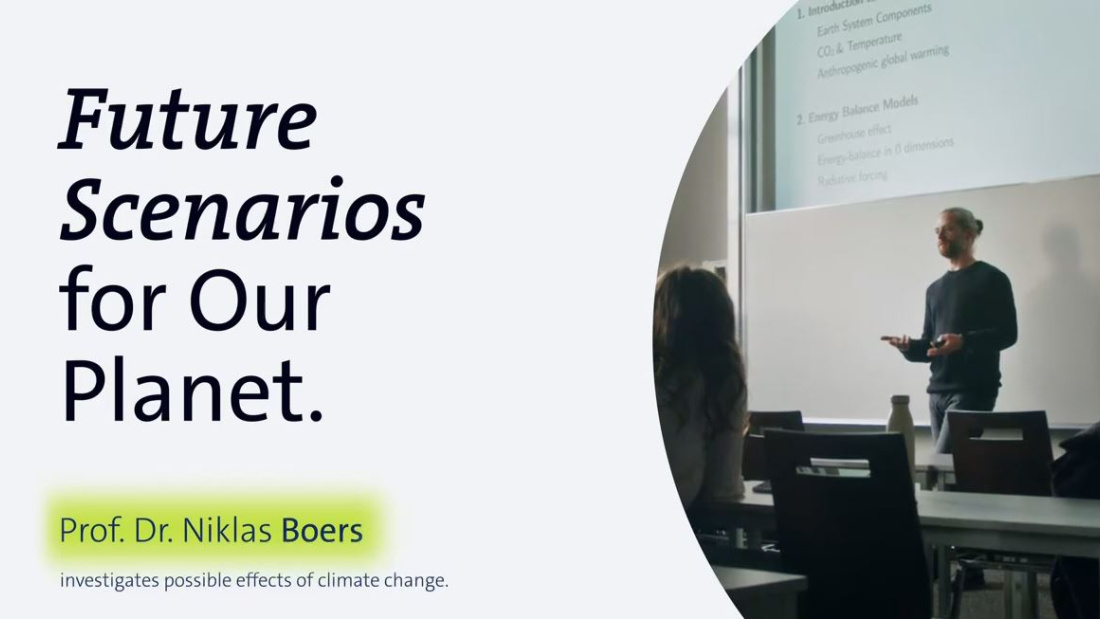
Element K für VolkswagenStiftung
Niklas Boers in our video portrait: Future szenarios for our earth
In the EU project Tipping Points in the Earth System (TiPES) and his Freigeist Fellowship funded by the Volkswagen Foundation, the mathematician has studied the stability of the Greenland ice sheet, the Atlantic Meridional Overturning Circulation, and the Amazon rainforest. "We do not know for sure whether any of these systems could actually be affected by an 'abrupt tip' as a result of human-induced climate change, and it's virtually impossible to indicate precisely when such an event could happen," he says. "But nonetheless, as climate warming increases, it becomes more likely."
Of all the presumed tipping possibilities, the Atlantic circulation, the Amazon rain forest, and the polar ice sheets are the most likely: "It is not at all certain there will be an abrupt tip, but if it did happen it would be so catastrophic that we simply cannot afford to ignore the possibility," Boers warns. In this respect we have a responsibility to future generations, he adds. How can humans live sustainably in harmony with their environment – "that's been on my mind for a long time," says Niklas Boers.
During his studies, he drifted for a while into mathematics "with its beautifully clear abstractness and precision." He learned a lot, he says – but around the time he started on his dissertation, he began to feel he was going down the wrong path: "I realized it wasn't my life's ambition to find solutions to problems that only a few people were interested in."
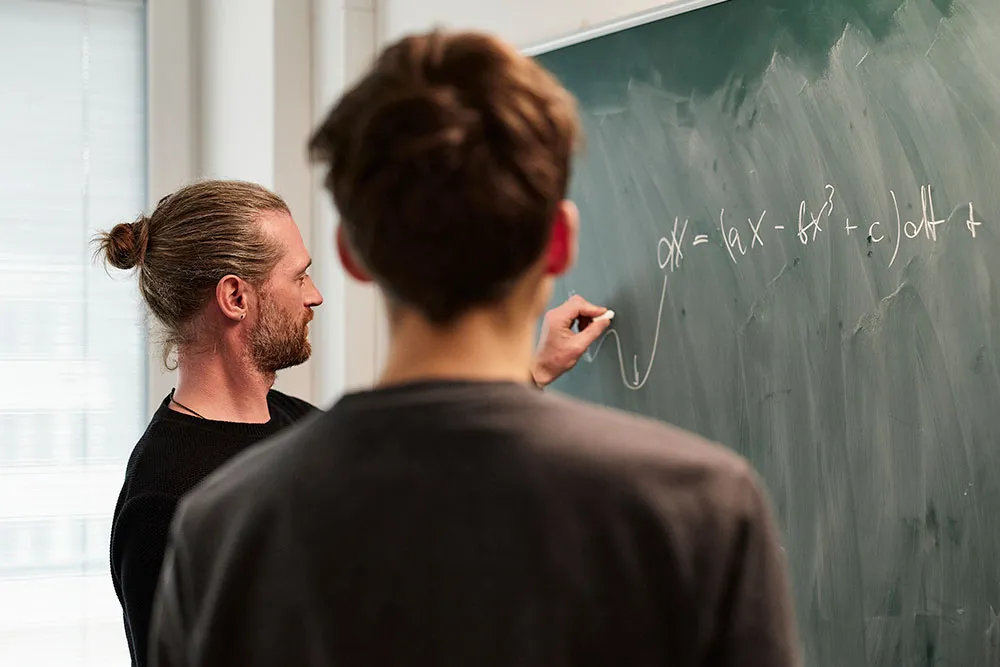
Niklas Boers during a lecture at the Ludwig-Maximilians-Universität in Munich. He holds the chair of "Earth System Modelling".
Then, in 2009, Boers also attended the world climate summit in Copenhagen, which at the time bitterly disappointed the lofty expectations of the so-called developing countries. "It was clear to everyone that things were getting out of control and we were about to crash against the wall," he recalls, "It made me very angry that such a blatantly obvious problem wasn't being addressed." So, he made up his mind to use his skills in a way that would contribute towards creating a vision for a sustainable future.
After just three months, he abandoned his dissertation in mathematics to start a new thesis in theoretical physics at the Potsdam Institute for Climate Impact Research (PIK). The topic dealt with the network-based modeling and prediction of heavy rainfall events that, in the long run, should enable a better reflection of precipitation events in climate models. "This allowed me to be semi-theoretical – and still address real-life issues," Boers says.
It made me very angry that such a blatantly obvious problem wasn't being addressed.
As a postdoc, he worked in Paris and London on modeling nonlinear phenomena in the Earth system, initially analyzing the abrupt climate changes of past ages recorded in ice cores. He developed a very good relationship with his supervisors, Michael Ghil at École Normale Supérieure in Paris and Brian Hoskins at Imperial College in London: "They were so supportive in helping me find my way." In London, Boers wrote the proposal for the project funded by the European Commission called Tipping Points in the Earth System, which he has been coordinating at PIK with the University of Copenhagen since 2019.
In 2019, events then took over: In the spring, the young scientist received an offer of a professorship in Norway. In June, he received a call from the University of Exeter for a professorship, and only three days later he received a letter from the Volkswagen Foundation confirming the award of a Freigeist Fellowship. Since 2020, he has been implementing his Freigeist project titled Predicting Abrupt Transitions and Extreme Events in the Earth system. The position at Exeter was subsequently converted into an honorary professorship in mathematics. At PIK, he has been leading the Future Lab for Artificial Intelligence in the Anthropocene since 2019.
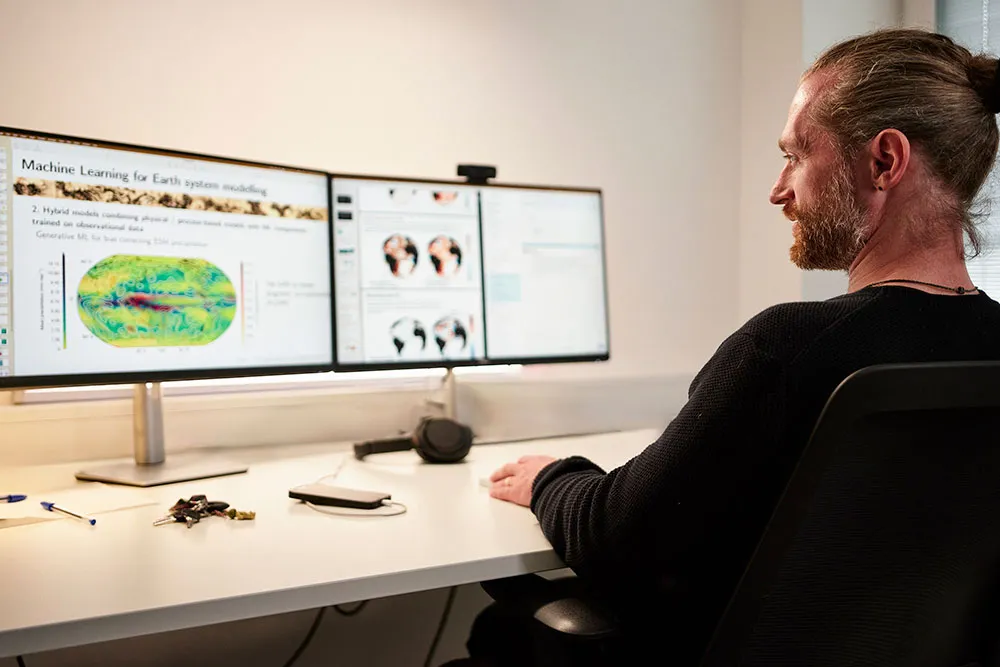
For his climate models, Niklas Boers combines machine learning with conventional methods to obtain novel computational models.
Since the fall of 2021, Niklas Boers has been Professor of Earth System Modeling at the Technical University of Munich (TUM), where he is working on a "major challenge" in climate research: Building an Earth system model for climatic predictions whose submodels are improved using machine learning methods. There are strong links between the researchers in Munich and at PIK, and the teams' work converges through him.
During the lockdown, meetings were carried out via Zoom. In the meantime, only larger meetings take place online; presence is required. However, time management is something Boers is still working on: "I don’t have a recipe for finding a good balance between work, counselling doctoral students, and spending time with my family," he admits, "That’s really complicated!"
Boers is working flat out to improve the current climate models. He is worried that some processes in these models may be too stable, that extreme events are not sufficiently well reproduced, and that the models are overfitted to observational data from the past 150 years: "That's certainly a problem."
His hybrid model is designed to combine the basic physical equations of the Earth system, as far as we know them, with information from empirical data by means of machine learning. He is not primarily concerned with ramping up the currently most powerful exascale computers "to their maximum just because we can." His scientific ambition is rather to make the necessary calculations as efficient as possible, "because at a certain point, how much you compute in turn affects the climate."
Together with the Swiss climate researcher Thomas Stocker and other colleagues, he is campaigning for a special report on tipping points by the Intergovernmental Panel on Climate Change (IPCC). A balanced scientific report is important in order to adequately assess the risks and to bring the "overheated debate on tipping points back onto solid scientific foundations."
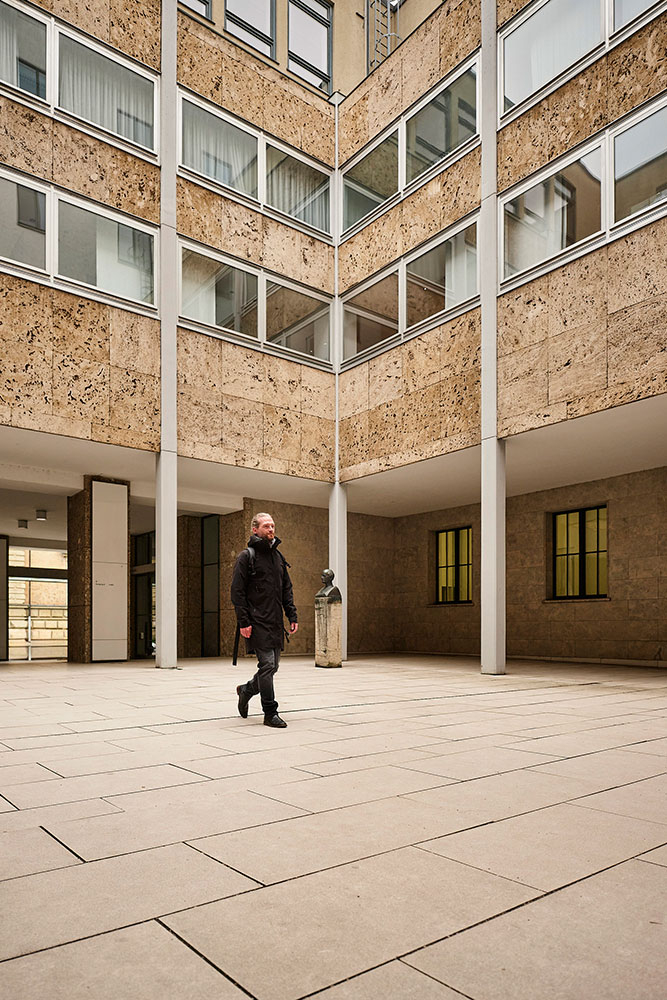
Niklas Boers kombiniert für seine Klimamodelle Machine Learning mit herkömmlichen Methoden, um so neuartige Rechenmodelle zu ehalten.
The question of climate justice occupies him "emotionally". But he considers statements like "if we are not climate neutral by 2030, then the Atlantic Ocean circulation will collapse in 2050" to be "highly problematic" because of the great uncertainties: "We lack the scientific evidence for such statements." In the overall sum of scientific findings, however, he says it is clear that "the later you start working seriously towards climate neutrality, the more expensive it will be, the more suffering will result, and the greater the probability that a tipping point could be passed after all." Niklas Boers sees his role as showing what the impact of human actions on the planet could be based on fact. In the end, he remains "very optimistic that we as humanity can still turn the tide."
Publications on the subject:
- Boers, N., Ghil, M., Stocker, T. F.:
"Theoretical and paleoclimatic evidence for abrupt transitions in the Earth system". Environmental Research Letters. 2022; 17: 093006. - CA Boulton, TM Lenton, N. Boers:
"Pronounced loss of Amazon rainforest resilience since the early 2000s". Nature Climate Change. 2022; 12 (3): 271-278. - N. Boers:
"Observation-based early-warning signals for a collapse of the Atlantic Meridional Overturning Circulation". Nature Climate Change. 2021; 11: 680–688. - N. Boers, M. Rypdal:
"Critical Slowing Down suggests that the western Greenland ice sheet is close to a tipping point". Proceedings of the National Academy of Sciences. 2021; 118 (21). - Christopher Irrgang, Niklas Boers, ...:
"Towards neural Earth system modelling by integrating artificial intelligence in Earth system science", Nature Machine Intelligence 2021. - Philipp Hess, Markus Drücke, Stefan Petri, Felix Strnad, Niklas Boers:
"Physically constrained generative adversarial networks for improving precipitation fields from Earth system models", Nature Machine Intelligence 2022.

